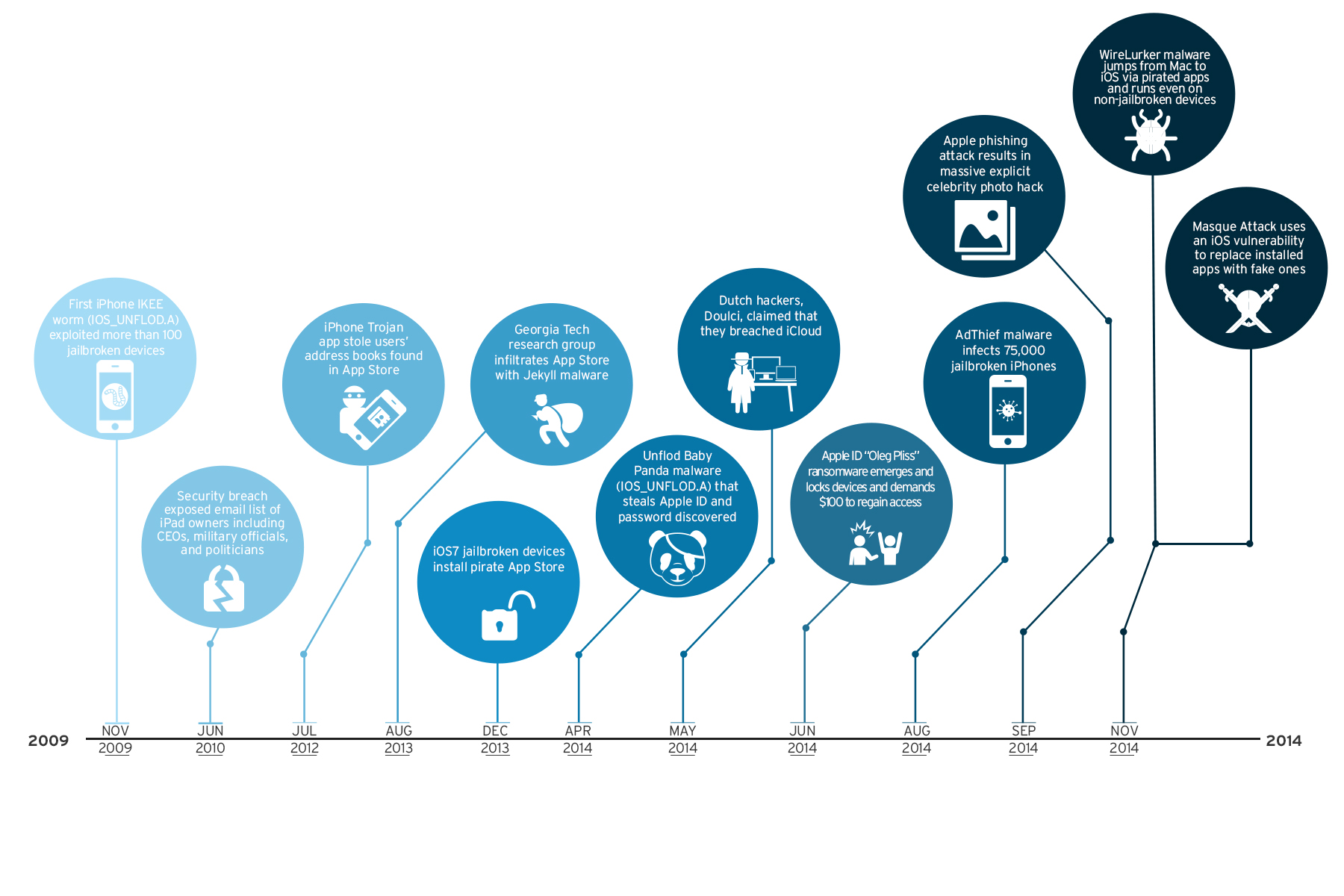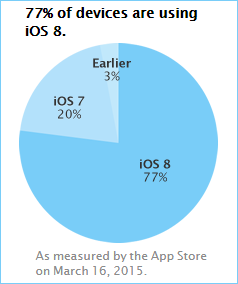Revisiting iOS Security as Apple Cracks Down on Antimalware Apps

In an effort to prevent users from thinking that the 6-month-old iOS 8, dubbed the “biggest iOS release ever,” has exploitable flaws, Apple is reportedly cracking down on antimalware products in the iOS App Store.
[Read: The New Security Features of iOS 8]
Recently, a known email and cloud scanner app for iOS was taken down from the App Store, disrupting a niche of users who were using it to ensure that files forwarded to non-iOS users were free from malware. Apple reasoned that the app’s App Store description was misleading and could lead customers to think that iOS 8 products can be exploited. The app’s representative then reported that Apple may have plans to completely remove the antivirus and antimalware category in its iOS App Store.
We have yet to see threats successfully attack the iOS 8 platform, but that doesn't mean it can be assumed that it can't be attacked or compromised in the future. iOS device users need to be constantly on-guard for the following reasons:
- A closed ecosystem may not ensure app security

- 2 out of 10 iOS devices are still running on older versions

Like it? Add this infographic to your site:
1. Click on the box below. 2. Press Ctrl+A to select all. 3. Press Ctrl+C to copy. 4. Paste the code into your page (Ctrl+V).
Image will appear the same size as you see above.
- How Unmanaged AI Adoption Puts Your Enterprise at Risk
- Estimating Future Risk Outbreaks at Scale in Real-World Deployments
- The Next Phase of Cybercrime: Agentic AI and the Shift to Autonomous Criminal Operations
- Reimagining Fraud Operations: The Rise of AI-Powered Scam Assembly Lines
- The Devil Reviews Xanthorox: A Criminal-Focused Analysis of the Latest Malicious LLM Offering

 Complexity and Visibility Gaps in Power Automate
Complexity and Visibility Gaps in Power Automate AI Security Starts Here: The Essentials for Every Organization
AI Security Starts Here: The Essentials for Every Organization Ransomware Spotlight: DragonForce
Ransomware Spotlight: DragonForce Stay Ahead of AI Threats: Secure LLM Applications With Trend Vision One
Stay Ahead of AI Threats: Secure LLM Applications With Trend Vision One